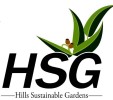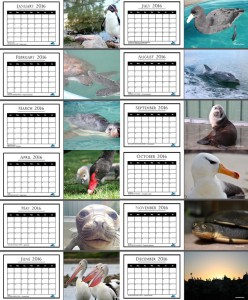AMWRRO would like to welcome our latest sponsor Hills Sustainable Gardens (HSG) to the AMWRRO Team and thank the company Directors Wade and Sam for dedicating time and effort into the unique AMWRRO Wetland Facilities.
As unique as the AMWRRO Rehabilitation Facilities are, our wetland concept was designed to incorporating a natural wetland facility to those in care animals, however this design takes a lot of time and energy to maintain.
Hills Sustainable Gardens is a qualified horticulture business that has a regular client base of exclusive properties spread all over the Adelaide Hills. With highly dedicated, qualified and experienced staff, a professional mind-set optimising the daily and weekly schedules in order to suit their customers gardening needs.
 Whether it is paying special attention to detail required for their delicate flora or whether it’s the close attention to detail of your carefully manicured small or large green lawn areas. HSG has the gardening experience for urban, rural, sophisticated, residential and large commercial properties.
Whether it is paying special attention to detail required for their delicate flora or whether it’s the close attention to detail of your carefully manicured small or large green lawn areas. HSG has the gardening experience for urban, rural, sophisticated, residential and large commercial properties.
Sustainability for HSG is especially important to their business particularly due to ‘sustainable’ being in their business name. Sustainability means to be able to maintain gardens to a desirable level for proprietors.
South Australia is regularly drought affected, the team at HSG feel it would be more appropriate to use a landscape concept that does not require overuse of watering thus assisting the Environmental; sustainability whilst at the same time reducing costly time consuming garden maintenance. Sustainable to HSG also means meeting the other important environmental needs such as promoting native wildlife which includes using an abundance of South Australian native plants which they believe can enhance the look of a property and encourage native wildlife.
With Christmas around the corner and the New Year fast approaching AMWRRO would like to present our 2016 Rescue Calendar.
This 13 month calendar highlights just a few of our special rescue and release cases. These 13 beautiful high resolution images of our rescue patients whilst either in care at AMWRRO or whilst being released back into the wild is a very small snapshot of the wonderful work AMWRRO Volunteers are responsible for 7 days a week – 365 days a year.
This fantastic gift idea to family, friends or co-workers will support the very important work AMWRRO performs throughout South Australia and beyond if and when required.
All proceeds of this calendar are dedicated to the ongoing rescue and rehabilitation of our amazing and unique marine wildlife. Calendars only $20.00
To order your AMWRRO 2016 Rescue Calendar today, please download the Order Form by clicking here and either scanning and emailing it back or, sending it in by post.
There is only a limited number available so please be quick to secure your copy today.
Thank you for your support.
Now well into spring and with summer fast approaching many seals (both sea lions and fur seals) are often found in shallow water thermal regulating.
Thermal regulation is a completely normal behaviour and some individuals will do this for hours at a time.
Seals do this to regulate their body temperature (either warm up or cool down by using the sun or wind on their fore flippers and hind flippers or at times, both at the same time); this can at times look like the animal has perished and is slowly floating ashore but is not the case.
AMWRRO receives approximately 2000 – 3000 calls each year by concerned beachgoers from across Australia with regards to thermal regulating seals and in particular from across Adelaide’s metropolitan beaches.
As wonderful as it is knowing there are so many concerned people out there willing to make the call for assistance, we do at times get abused for not acting on their suspicion that the animal is in dire need of assistance due to an entanglement, shark attack, sickness or is already dead and floating ashore.
If you are lucky enough to see a seal floating inshore with flippers pointing upright; you’re one of the lucky ones that is witnessing a wild animal thermal regulating.
South Australia is one of the luckiest States in Australia due to the diversity of seal and sea lion populations that are located within our waters verses that of other States, this does however mean South Australian’s are much more likely to see one of these amazing animals along your favourite stretch of coast line especially in the warmer weather.
Much like elephants that use their large ear veins to cool themselves down whilst flapping and pumping blood through them, seals do exactly the same thing but instead of using their tiny ears, they use their large flippers. Seal fore and hind flippers have large veins running through them that allow circulating blood to warm up or cool down – a very clever design for an animal that has thick blubber and fur which means they need all the help they can get to maintain a comfortable body temperature.
If you are lucky enough to witness this natural behaviour please remember the following facts:
If you have any concerns regarding marine wildlife that you would like clarified or confirmed please feel free to contact AMWRRO on the 24 hour phone numbers 08 8262 5452 or 08 8378 3364